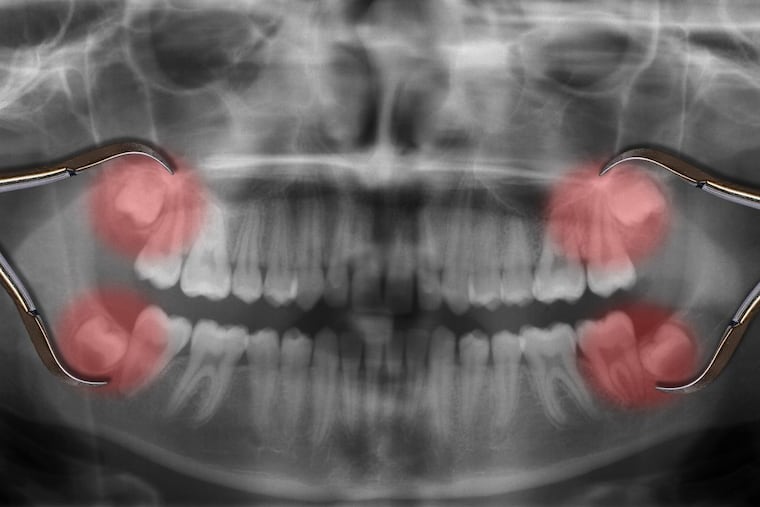Opioids after wisdom teeth removal nearly triple risk of long-term use, study finds
The study found that young people who filled an opioid prescription immediately before or after having the dental procedure were 2.7 times more likely than their peers to fill another opioid prescription over the next year.

Taking opioids for pain relief after having wisdom teeth removed could set patients up for long-term drug use, according to a new study.
University of Michigan researchers found that young people aged 13 to 30 who filled an opioid prescription immediately before or after having the dental procedure were 2.7 times more likely than their peers to fill another opioid prescription over the next year. Their findings are being reported in a research letter published Tuesday in the new issue of JAMA.
About 3.5 million wisdom tooth extractions are performed in the U.S. each year.
The researchers looked at the data of those patients who had private employer-based insurance when their wisdom teeth were removed but had not filled an opioid prescription in the six months before the procedure.
"We now see that a sizable number go on to fill opioid prescriptions long after we would expect they would need for recovery, and the main predictor of persistent use is whether or not they fill that initial prescription," said Calista Harbaugh, a research fellow with the Michigan Opioid Prescribing and Engagement Network.
>>READ MORE: Opioid pills for a simple sprained ankle? It's a thing in some states.
In total, researchers looked at 56,686 wisdom tooth patients who filled their opioid prescription between 2009 and 2015 and found 1.3 percent went on to persistent opioid use compared with 0.5 of the 14,256 patients who did not fill the prescription.
Those patients in their late teens and 20s had the highest odds of persistent opioid use, compared with younger patients in middle school and high school. Teens and young adults with a history of depression or anxiety, or those with chronic pain, were more likely to go on to persistent use after filling their wisdom tooth-related prescription, researchers found.
Researchers were not able to determine whether there was any misuse of leftover drugs from the prescription by other members of the household or visitors. Nor did they know the reasons for additional prescriptions within the following year.
The researchers recommended that dentists and oral surgeons consider prescribing non-opioid painkillers first, and if that isn't enough, prescribing less than the seven-day opioid supply recommended by the American Dental Association.
>>READ MORE: Taming the opioid epidemic one medicine cabinet at a time | Perspective
In 1998, dentists accounted for 15.5 percent of all opioid prescriptions in the U.S. By 2012, that number dropped to 6.4 percent.
In March, the American Dental Association announced a new policy that supported mandates on prescription limits and continuing education for opioids and other controlled substances.